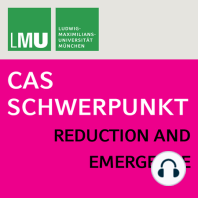51 min listen

Agent-based Models and Confirmation Theory
FromCenter for Advanced Studies (CAS) Research Focus Reduction and Emergence (LMU)
Agent-based Models and Confirmation Theory
FromCenter for Advanced Studies (CAS) Research Focus Reduction and Emergence (LMU)
ratings:
Length:
49 minutes
Released:
Dec 13, 2014
Format:
Podcast episode
Description
Is it possible to develop a confirmation theory for agent-based models? The are good reasons to be skeptical: Classical confirmation theory explains how empirical evidence bears on the truth of hypotheses and theories, while agent-based models are almost always idealized and hence known to be false. Moreover, classical ideas about confirmation have been developed for relatively simple hypotheses, while even the simplest agent-based models have thousands of variables. Nevertheless, we can draw on ideas from confirmation theory in order to develop an account of agent-based model confirmation. Theorists can confirm hypotheses about model/world relations, and they can also use a variety of techniques to investigate the reliability of model results. This paper is an exploration of these possibilities. | Center for Advanced Studies & Munich Center for Mathematical Philosophy: 13.12.2014 | Speaker: Michael Weisberg
Released:
Dec 13, 2014
Format:
Podcast episode
Titles in the series (25)
The Physics of Ontological Emergence: Reduction and Emergence in the Sciences by Center for Advanced Studies (CAS) Research Focus Reduction and Emergence (LMU)